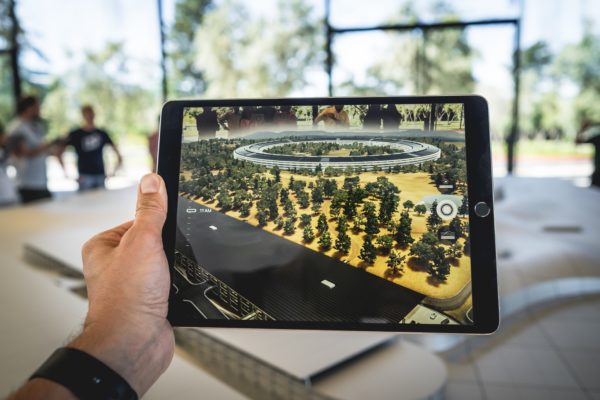A multi-million dollar ARC Training Centre at Deakin will propel innovations in energy production across the nation.
The next generation of Australian energy researchers and energy technology workforce are set to benefit from a new Deakin University-led Training Centre for Future Energy Storage Technologies.
The Centre will be led by Deakin’s Professor Maria Forsyth, a world expert in battery technologies, who is known for her pioneering work in developing advanced electrolyte materials for electrochemical devices.
“The Centre will provide the skills needed to drive innovation, exploration and investigation, and safeguard Australian workers and industries,” said Professor Forsyth.
[testimonial_text]There’s an urgent need to work closely with industry to stay globally competitive. We will focus on developing new materials and technologies, so we can create efficient energy storage devices and identify ways to integrate these into end-user applications.[/testimonial_text]
[testimonial_picture name=”Professor Maria Forsyth” details=”Deakin University Institute for Frontier Materials”]
 [/testimonial_picture]
[/testimonial_picture]Announced in the Australian Research Council’s latest funding round, the Industrial Transformation Training Centre will receive $4.38 million in funding. It will involve six other senior Deakin researchers, along with investigators from four other universities and more than a dozen industry partners.
“We expect to create new knowledge and intellectual property in advanced energy materials, batteries and battery-control systems, particularly helping small to medium-sized enterprises to take a global leadership role in advancing and producing new storage technologies,” said Professor Forsyth.
The Centre will utilise Deakin Waurn Ponds’ Battery Technology Research and Innovation Hub (Bat-TRI-Hub) and other facilities such as the Institute for Frontier Materials’ world-class electrochemistry and NMR imaging labs, and Deakin’s Centre for Advanced Design in Engineering Training (CADET).
Deakin’s Institute for Intelligent Systems Research and Innovation (IISRI) will also play a role, helping with simulation and review of smart grid and technology systems. Deakin’s Carbon Nexus carbon fibre and composite research centre will provide further scope for producing advanced energy prototypes.
“This project is unapologetically future-focused and will help to create the next generation of forward-thinking entrepreneurs,” Professor Forsyth said.
More than 20 scientists and engineers will be embedded in dynamic industry settings and will gain advanced skills in materials manufacture and energy storage device design and production.
The new Centre will be Deakin’s second ARC Industrial Transformation Training Centre, both based within the Institute for Frontier Materials. MineAlloy was launched last year to support Australia’s multi-billion dollar mining equipment sector.
Other Deakin researchers involved will be: Professor Abbas Kouzani; Associate Professor Jennifer Pringle; Associate Professor Patrick Howlett; Dr Robert Kerr; Professor Saeid Nahavandi; and Dr Michael Fielding.
Collaborating Institutions are: Monash University; Queensland University of Technology; The University of Melbourne; and the University of South Australia.
Partner and other organisations are: Boron Molecular Pty Ltd; Calix Ltd; Clean Teq Ltd, CSIRO; DST Group; M.Brodribb Pty Ltd; Ionic Industries Ltd; National Safety Agency Ltd; Raedyne Systems Pty Ltd; Sensorplex Pty Ltd; Sentek Pty Ltd; SupraG Energy Pty Ltd; Wilson Transformer Company Pty Ltd; and Cidetec-IK4.
Epigenetics and aquaculture: focus of new ARC Future Fellows
Understandings in aquaculture and epigenetics are set to progress, with Deakin gaining two new ARC Future Fellows: Associate Professor Maurizio Meloni, from the Alfred Deakin Institute for Citizenship and Globalisation (ADI) and Dr Timothy Clark from the School of Life and Environmental Sciences.
Associate Professor Meloni has been awarded $917,134 to investigate how epigenetics (the science of how environmental factors switch genes on or off) is reshaping notions of the body, heredity and biological plasticity in the Global South. His research program will explore the extent to which epigenetics can and should form the basis for social policy and the potential implications of this for vulnerable minority groups.
 (Left) Associate Professor Maurizio Meloni and (right) Dr Timothy Clark
(Left) Associate Professor Maurizio Meloni and (right) Dr Timothy Clark
New Future Fellow Dr Timothy Clark has been awarded $858,171 to investigate one of the most ubiquitous challenges facing global fish populations. Seeking to understand why fish are shrinking as the climate warms, Dr Clark hopes to uncover the mechanisms behind the phenomenon in order to benefit both wild and cultured fish stock.
Also, Deakin’s Professor Rosanne Guijit will be part of an Industrial Transformation Research Hub (ITRH) led by Griffith University and Associate Professor Patrick Howlett will participate in an ITRH led by the University of New South Wales.
Published by Deakin Research on 10 August 2018



